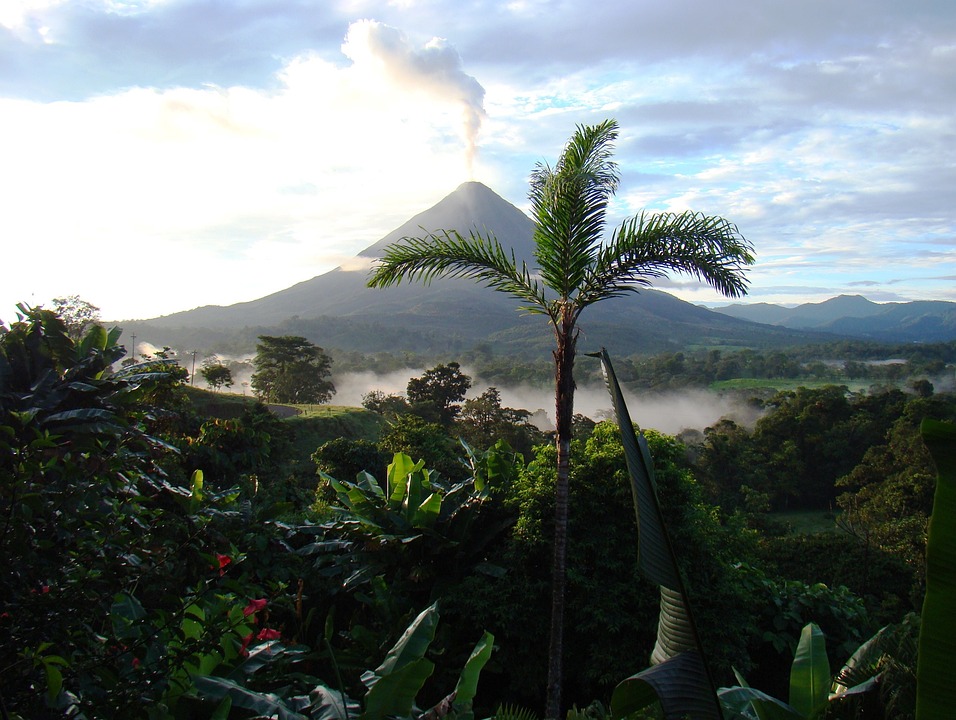Country Details
Costa Rica, officially known as the Republic of Costa Rica, is a small but remarkable country located in Central America. Known for its natural beauty and commitment to environmental sustainability, Costa Rica offers a wealth of experiences for visitors. Here are five important facts about Costa Rica:
1. Biodiversity Hotspot: Despite its small size, Costa Rica is considered one of the world's most biodiverse countries. It is home to a wide range of ecosystems, including rainforests, cloud forests, coastal mangroves, and volcanic landscapes. Costa Rica's commitment to conservation has resulted in an extensive network of protected areas, such as national parks and reserves, which safeguard unique species like toucans, sloths, jaguars, and sea turtles.
2. Pioneering Environmental Policies: Costa Rica is renowned for its environmental stewardship. It has set ambitious goals to become carbon neutral by 2021 and aims to eliminate single-use plastics by 2025. The country has long-standing commitments to renewable energy, with a significant portion of its electricity generated from renewable sources like hydro, wind, and geothermal power. Costa Rica's dedication to sustainability has earned it a reputation as a global leader in environmental conservation.
3. Adventure and Outdoor Activities: Costa Rica offers a plethora of thrilling outdoor activities and adventure sports. From zip-lining through the rainforest canopy to white-water rafting on rushing rivers, the country provides opportunities for adrenaline enthusiasts. Other popular activities include hiking to volcanoes, surfing in world-class breaks, and exploring wildlife-rich national parks. Costa Rica's diverse landscapes and well-developed tourism infrastructure make it an ideal destination for adventure seekers.
4. Pura Vida Philosophy: "Pura Vida" is a commonly used phrase in Costa Rica that translates to "pure life" or "simple life." It encapsulates the country's laid-back and friendly lifestyle. Costa Ricans, known as Ticos, embody this philosophy, emphasizing the importance of appreciating life's simple pleasures, maintaining a positive outlook, and prioritizing community and family values. Visitors often find themselves immersed in the pura vida spirit, enjoying the relaxed atmosphere and warm hospitality.
5. Stable Democracy and Quality of Life: Costa Rica is recognized as one of the most politically stable and peaceful countries in Latin America. It abolished its army in 1948 and redirected funds towards education, healthcare, and social welfare programs. As a result, Costa Rica enjoys high literacy rates, access to quality healthcare, and a high standard of living compared to many other countries in the region. Its stable democracy and commitment to social progress contribute to a safe and welcoming environment for residents and visitors alike.
These important facts highlight Costa Rica's exceptional
Immigration Details
To immigrate to Costa Rica, there are several pathways available, including the Golden Visa program, establishing a company, work permits, studying, and obtaining citizenship or residency. Let's explore each option:
1. Golden Visa Program:
- Capital requirements: Costa Rica does not have a specific Golden Visa program. However, they offer a program called "Rentista," which grants temporary residency to individuals who can prove a stable income stream. The income requirement is currently set at $2,500 per month.
- Residency permit: Once you meet the Rentista program's income requirement, you can apply for a temporary residency permit, which allows you to live in Costa Rica.
- Timeline and fees: The timeline for obtaining a temporary residency permit can vary, but it generally takes several months. The fees associated with the Rentista program include visa application fees, legal fees, government fees, and other administrative expenses.
2. Establishing a Company:
- Capital requirements: To establish a company in Costa Rica, there are no specific capital requirements. The amount of capital needed will depend on the nature and scale of the business you plan to establish.
- Employing locals: As a company owner, you can employ Costa Rican citizens or authorized workers. The employment requirements and regulations can be obtained from Costa Rican authorities or legal professionals.
- Residency permit: As a company owner, you may be eligible to apply for a residency permit based on entrepreneurship or investment, subject to meeting specific criteria and requirements.
- Timeline and fees: The timeline for establishing a company and obtaining a residency permit can vary, but it generally takes several months. The fees can include company registration costs, legal fees, visa application fees, and other administrative charges.
3. Work Permit:
- Finding a job: Securing a job offer from a Costa Rican employer is crucial for obtaining a work permit. The employer will need to sponsor your work permit and provide necessary documentation, including an employment contract and proof of qualifications.
- Work permit: Once you have a job offer, your employer will apply for a work permit on your behalf. The type of work permit will depend on the job category and your qualifications.
- Residency permit: Depending on the duration of your employment and circumstances, you may be eligible to apply for a residency permit based on employment.
- Timeline and fees: The processing time for work permits and residency permits can vary, but it generally takes several months. The fees can include work permit application fees, legal fees, and other administrative charges.
4. Study-based Immigration:
- Obtain admission: Apply and get accepted into a recognized educational institution in Costa Rica.
- Student visa: Once accepted, you will need to apply for a student visa, which allows you to reside in Costa Rica for the duration of your studies.
- Residency permit: Depending on your circumstances, you may be able to transition from a student visa to a residency permit based on employment or other eligible categories.
- Timeline and fees: The processing time for student visas and residency permits can vary, but it generally takes several months. The fees typically include visa application fees, tuition fees, and other administrative charges.
5. Citizenship or Residency:
- Citizenship: Costa Rican citizenship can be obtained through naturalization. The requirements include residing in Costa Rica for a specified period, demonstrating knowledge of the Spanish language, passing citizenship tests, and meeting other eligibility criteria.
- Residency permit: If you do not qualify for citizenship, you may consider applying for a permanent residency permit, which grants legal residency status in Costa Rica without citizenship rights.
- Timeline and fees: The timeline for obtaining citizenship or a residency permit can vary significantly, often taking several years. The fees depend on the specific process, including application fees, language
test fees, legal fees, and other administrative costs.
It's important to note that immigration regulations and requirements in Costa Rica can change over time. Therefore, it's advisable to consult with Costa Rican authorities or seek professional advice to obtain the most accurate and up-to-date information based on your specific circumstances.



Add a review